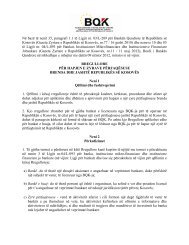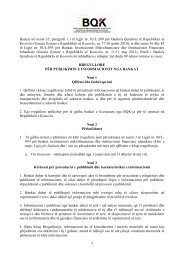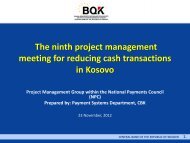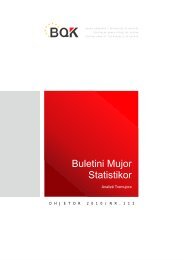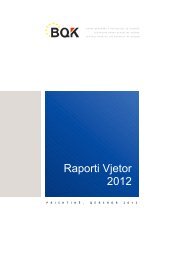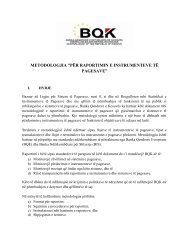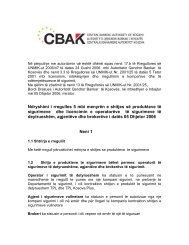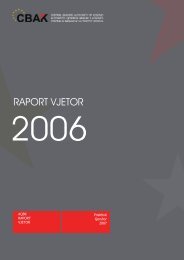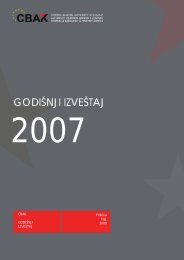Financial Stability Report No1 20 December 2010 - Banka Qendrore ...
Financial Stability Report No1 20 December 2010 - Banka Qendrore ...
Financial Stability Report No1 20 December 2010 - Banka Qendrore ...
Create successful ePaper yourself
Turn your PDF publications into a flip-book with our unique Google optimized e-Paper software.
<strong>Financial</strong> <strong>Stability</strong> <strong>Report</strong>Number 1pronounced decline compared to the previous year. In June <strong>20</strong>10, the value of these RWAwas euro 5.7 million or 69 percent lower than in June <strong>20</strong>09.6.5. Stress-Test AnalysisStress-test analysis provides information on the stability of the banking system under theassumptions of negative shocks to the sector. Stress-test represents a very importantinstrument for risk management at individual banks, which is also used by central banks toassess risks at the level of the system. The main objective of the stress-test is to explain thevulnerability of the banking system to the fluctuations of different risk factors. Stress-testcan be applied both on the asset and liability side of the bank portfolio.Figure 45. Simplified presentation of the stress-test methodologylReal sector shockAffected sectorsHouseholds Enterprises Public sectorCredit riskImpact on the banking sectorInterest rate riskExchange rateriskImpact on the bankingsectorLiquidity riskProf itImpact on the banking sectorCapitalImpact on the bankingsectorLiquid assetsIn this context, with the stress-test analysis the sensitivity of banks against various riskscan be assessed: such as credit risk (potential losses from the increase of non-performingloans); liquidity risk (the possibility of withdrawal of large amounts of deposits); interestrate risk (potential losses from changes in interest rates); and exchange rate risk (potenciallosses from changes in exchange rates). Figure 45 presents the channels through which a| 49



